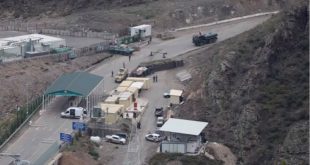Billionaire businessman and former prime minister, Najib Mikati, is very likely to give up on his mandate to form a new government for crisis-rocked Lebanon, which would deepen a political crisis that has left the Arab country without a government for more than nine months as people endure an unprecedented economic meltdown.
“The formation picture is not encouraging and we are before a critical week regarding the government,” Lebanese Arabic-language al-Joumhouria daily newspaper, citing unnamed informed political sources, reported on Monday.
“Information, leaking from sources close to President (Michel) Aoun and Mikati, points to negative prospects,” the report said.
The report then attributed the deadlock to “ulterior domestic and foreign interventions over the past few days that soured the positive atmosphere that Aoun and Mikati had spoken of last week.”
“Prior to the setback, Aoun and Mikati were about to enter the final phase of picking candidates ahead of declaring the cabinet line-up,” al-Joumhouria reported.
Mikati was recently appointed as Lebanon’s new prime minister-designate tasked with forming a cabinet, after his predecessor Saad al-Hariri abandoned efforts to form a new government.
Earlier this month, Mikati said progress, though slow, had been achieved toward forming a desperately-needed cabinet in the cash-strapped Arab country, stressing that donor countries will not help Lebanon unless it helps itself.
On Thursday, Aoun said some political parties were seeking to delay the formation of a new government and push the Arab country toward chaos.
Lebanon has been mired since late 2019 in a deep economic and financial crisis, exacerbated by a political deadlock.
The economic and financial crisis is the gravest threat to the country’s stability since the 15-year civil war ended in 1990.
The crisis is mostly linked to the sanctions that the United States and its allies have imposed on Lebanon as well as foreign intervention in the Arab nation’s domestic affairs.
 Alghadeer TV Alghadeer TV
Alghadeer TV Alghadeer TV
